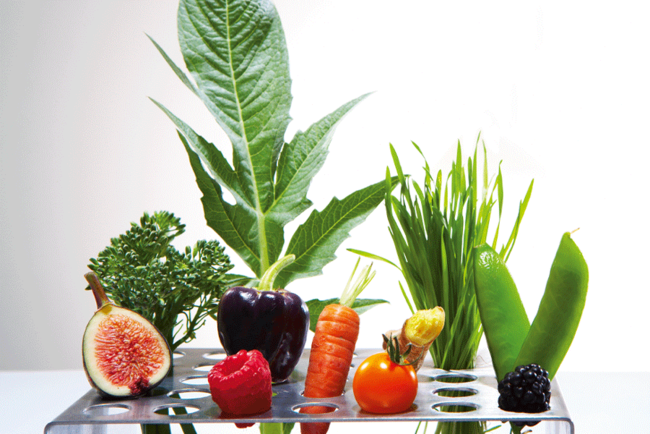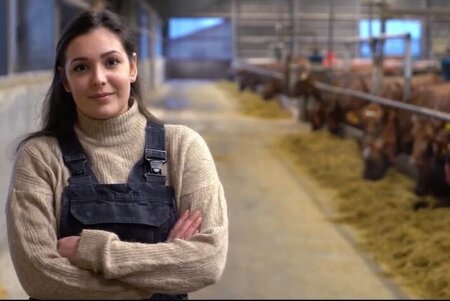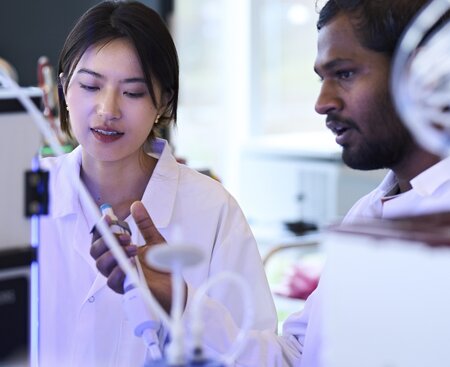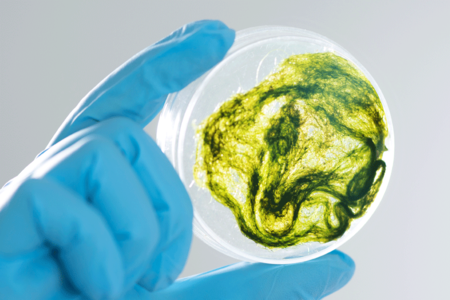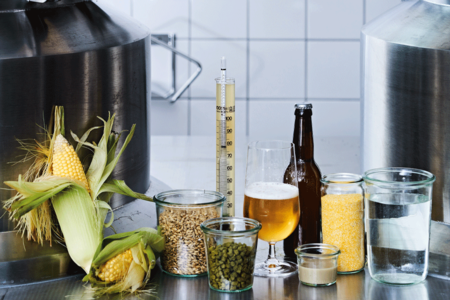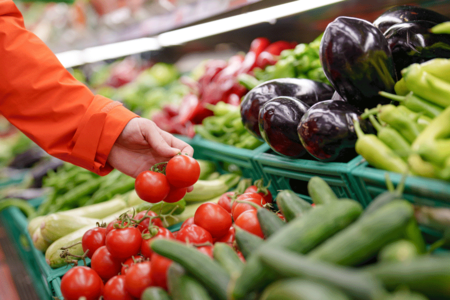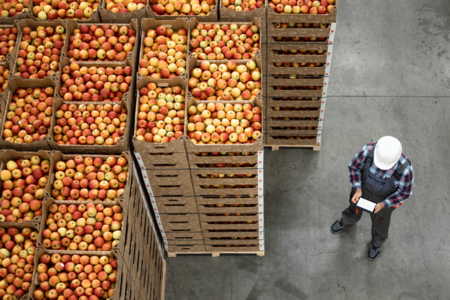About the programme
Join us for Open House
-
7 February,
13:30
- 15:00
Online presentation:
- 13:30 - 14:00
- 14:30 - 15:00
Considering studying at UCPH this September?
Apply by 15 January if you are an applicant from outside the EU/EEA/Switzerland. Apply by 1 March if you are from the EUAdmission and application
To apply for admission to this master's degree programme, you must have completed, or expect to complete, a qualifying bachelor’s degree or a similar Danish or international degree programme which is assessed to be relevant. Apply for admission via the application portal.
Below, you can read more about admission requirements and which documents to upload in the application portal.
Academic admission requirements
Here you'll find the different academic requirements depending on which qualifying degree you hold.
With a Bachelor's degree in
- Food Science (fødevarer og ernæring) with the specialisation in Quality and Technology from University of Copenhagen
- Food Science (fødevarer og ernæring) with the specialisation as Food Engineer from University of Copenhagen
you are granted legal right of admission and guaranteed a place on the Master’s programme in Food Science and Technology if you apply in time to begin within 3 years of the completion of your Bachelor’s degree.
You meet all academic requirements If you hold one of the degrees listed below. Learn about when and how to apply. Note, however, that you still need to document that you meet the programme's language requirements.
From University of Copenhagen
- Food Science (fødevarer og ernæring) with the specialisation in Quality and Technology (note, that if you apply in time to begin within 3 years of the completion of your Bachelor’s degree, you have legal right of admission to the Master's programme)
- Food Science (fødevarer og ernæring) with the specialisation as Food Engineer (note, that if you apply in time to begin within 3 years of the completion of your Bachelor’s degree, you have legal right of admission to the Master's programme)
From Technical University of Denmark
- Food Analysis
- Food Safety
If you have a Bachelor’s degree other than those listed above, you must submit additional documentation along with your application so we can evaluate whether or not you meet the admission requirements. Learn about when and how to apply.
If you have a Bachelor’s degree, Professional Bachelor's degree or equivalent from Danish or international universities you are qualified for admission if your programme includes the following:
- Mathematics (7.5 ECTS credits)
- Statistics (7.5 ECTS credits)
- Chemistry (15 ECTS credits)
- Cell and/or molecular biology (7.5 ECTS credits)
- Food microbiology (7.5 ECTS credits)
- Biochemistry (7.5 ECTS credits)
If you have a Bachelor's degree in Food Science with the specialisation in Nutrition and Health from University of Copenhagen you are qualified for admission if your programme includes the following:
- Food Microbiology - NFOB14028U Fødevaremikrobiologi
We may also admit applicants who, after an individual academic assessment, are deemed to possess educational qualifications equivalent to those required above.
Qualifying degree and other courses/projects
When we assess whether you meet the admission requirements for the Master's degree program, Danish legislation only allows us to assess your Bachelor's degree. Consequently, you cannot study supplementary courses between Bachelor's and Master's degree programs in order to meet the admission requirements.
If you have passed courses/projects before you complete the qualifying Bachelor's degree, these can be included in the assessment, even though they are not part of the Bachelor's degree program.
- It applies to courses/projects you have taken as single subjects and courses/projects you have taken as part of another study program.
- A maximum of 30 ECTS credits of these courses/projects may be included.
International Bachelor’s degree
You can only get an answer to whether or not your degree meets the admission requirement by applying for admission to the MSc Programme. Only the admission committee can evaluate whether you are qualified or not and they only do this once they have received your application.
Bachelor’s degree from Denmark
You are entitled to 1 pre-assessment for 1 study programme, where, based on an assessment of the documentation you have submitted, we will inform you whether you meet the admission requirements.
This is a service offered by SCIENCE, but it is not a service you have to make use of in order for you to apply for admission.
Language requirements
Unless you have a legal right of admission to the programme you are applying for, you are required to document proficiency in English.
Application deadlines
Study start in September
1 March at 23:59
Application deadline for Danish applicants and applicants from within the EU, EEA and Switzerland.
Open for applications from 16 January. You will receive a reply by 10 June.
15 January at 23:59
Application deadline for applicants from outside the EU, EEA and Switzerland.
Open for applications from 15 November. You will receive a reply by 1 May.
Study start in February (legal right of admission only)
15 October at 23:59
Application deadline for Danish applicants and applicants from within the EU, EEA and Switzerland.
Open for applications from 15 August. You will receive a reply by 10 December.
1 September at 23:59
Application deadline for applicants from outside the EU, EEA and Switzerland.
Open for applications from 1 July. You will receive a reply by 1 December.
How to apply
Choose the category below that fits you and read more about how to apply for admission. You will also find information about application deadlines and documentation on the websites.
Citizen in Denmark, EU EEA og Switzerland
Bachelor's degree with legal right of admission
Bachelor’s degree from Denmark
International bachelor’s degree
Citizen in a country outside EU, EEA or Switzerland
Bachelor’s degree from Denmark
International bachelor’s degree
Prioritisation of applicants
If the number of qualified applicants to the programme exceeds the number of places available, applicants will be prioritised according to the following criteria:
- Total number of ECTS in courses in mathematics, statistics, chemistry, cell and/or molecular biology, food microbiology and biochemistry
- Grade-point average achieved in qualifying degree.
Limitation on second degrees
If you have already completed a Master's degree, please check out the rules concerning a second degree.
| Admission statistics Food Science and Technology 2023 | |
|---|---|
| Admitted | 85 |
| Admission distribution (legal right/other) | 57% / 43% |
| Applicants | 176 |
| Age average | 26 |
| Legal gender distribution (cpr. - m/f) | 35% / 65% |
| Nationality (dk/international) | 61% / 39% |
| Available spots | No |
Programme structure
In the Food Science and Technology programme, you choose between four specialisations: Plant Based Foods, Dairy Science and Technology, Brewing Science and Technology, or the Individual Specialisation where you focus on the subjects of your own interest. You can read about each specialisation further down this page.
The programme consists of compulsory courses, elective courses, and thematic courses building on the knowledge you have acquired on food issues and food production.
At a high academic level, you will learn about food chemistry, microbiology, food technology, nutrition, physiology, pharmacology, pathology, gastronomy, and consumer choices. The teaching is in the form of lectures, seminars, practical and theoretical exercises, and a good deal of project work. You work both independently and in project groups.
Do a Project in Practice or Study Abroad
You can use some of your elective courses to do a Project in Practice in collaboration with a company or an organisation. You can also choose to study abroad as part of your programme. Read more here:
Master's Thesis
You finish your MSc studies by writing a thesis, which is a large scientific project corresponding to 30 or 45 ECTS. The thesis is often based on a specific problem from a food company or a research project. You can write your thesis on your own or in a group. Upon graduation, you gain the title Master of Science (MSc) in Food Science and Technology (in Danish: cand.tech.al.).
Specialisations
When you enroll in the programme, you must choose the particular field of study you wish to focus on. You can read about the programme's four specialisations below.
Globally, there is increasing awareness of the need to produce foods in a more sustainable way as part of a sustainable food system. One of the most effective ways to achieve this is by increasing our consumption of plant-based foods.
In addition, we need to reduce our use of resources and minimise raw material waste. To be successful, we must focus on producing plant-based foods that are nutritious, healthy, safe, and full of flavour.
Academic Focus
During the specialisation in plant-based foods you learn:
- about the importance of foods derived from plants in a well-balanced human diet.
- about the environmental sustainability of plant-based foods relative to other food sources.
- to identify the composition of plant resources relevant for food and also about the processes that foods of plant origin undergo e.g., fractionation and separation.
Furthermore, you will gain a deep insight into the interplay between safe foods and sustainable food production.
Teaching
Teaching is done by leading researchers from the University of Copenhagen and from the food industry. Lectures are combined with laboratory work, which is sometimes scaled up to pilot plant production.
Many courses are compulsory, but there are also elective courses worth 15-30 ECTS in total, allowing you to customise your education by selecting e.g., courses in gastronomy, advanced spectroscopy, or physical/chemical changes during storage.
Master's Thesis
You can write your thesis in collaboration with a company. Graduates with a specialisation in plant-based foods are awarded an MSc in Food Science & Technology.
Programme Overview
The specialisation can be structured in different ways, depending on whether you write a thesis worth 30 or 45 ECTS and whether you start in September or February. Below, you will find course tables showing the study structure if you start in September or February with a thesis worth 30 ECTS.
Example 1: Study Start in September, Thesis 30 ECTS
Compulsory courses: 60 ECTS
Elective courses: 30 ECTS
Master's thesis: 30 ECTS
One block each year equals nine weeks of study and 15 ECTS. The table is primarily for guidance and may be subject to revision.
Year 1
| Block 1 | Block 2 | Block 3 | Block 4 |
|---|---|---|---|
| Food Quality Management and Control | Microbiological Food Safety and Quality: Control, Cases, and Practicals | Food Processing | Foodomics and Plant Foods |
| Plants for Foods 1 - Composition and Biochemistry | Bioactive Food Components and Health | Plants for Foods 2 – Processing and Functionality | Sustainable Innovation in Food Science |
Year 2
| Block 1 | Block 2 | Block 3 | Block 4 |
|---|---|---|---|
| Elective | Elective | Thesis | |
| Elective | Elective | ||
Example 2: Study Start in February, Thesis 30 ECTS
Study start in February is only for students with legal right of admission to the programme. Read about legal right of admission.
Compulsory courses: 60 ECTS
Elective courses: 30 ECTS
Master's thesis: 30 ECTS
One block each year equals nine weeks of study and 15 ECTS. The table is primarily for guidance and may be subject to revision.
Year 1
| Block 3 | Block 4 | Block 1 | Block 2 |
|---|---|---|---|
| Food Processing | Foodomics and Plant Foods | Food Quality Management and Control | Microbiological Food Safety and Quality: Control, Cases, and Practicals |
| Plants for Foods 2 - Processing and Functionality | Sustainable Innovation in Food Science | Plants for Food 1 - Composition and Biochemistry | Bioactive Food Components and Health |
Year 2
| Block 3 | Block 4 | Block 1 | Block 2 |
|---|---|---|---|
| Elective course | Elective course | Thesis | |
| Elective course | Elective course | ||
Dairy products have a high nutritional value, and milk contains many unique chemical compounds, which can be used to add taste or structure to foods. Also, in the future dairy products will be important to a growing global population. The specialisation in Dairy Science and Technology will provide you with the opportunity to work in a key position in production, innovation, or technical consultancy.
Academic Focus
You learn about process technologies that convert raw milk into a variety of products. You'll get an understanding of the whole production chain and in-depth knowledge of how the individual processes in the dairy affect the product and quality of the product.
Biotechnology is another important teaching area within dairy technology. It focuses on the use of starter cultures and enzymes to create the right products with minimal use of resources. You will get an insight into the underlying chemistry and a deep understanding of the fermentation of foods. The programme also focuses on providing an in-depth insight into the formulation and production of dairy products, including the use of ingredients to achieve the right quality.
Teaching
You will be taught by leading scientists from the University of Copenhagen and from the industry. Lectures and laboratory work are supplemented by pilot-scale practical experiments. There are several excursions and company visits.
Danish dairies are very committed to the programme, and have, among other things, appointed a contact committee with industry representatives to ensure that the programme is solidly anchored in a practical, industrial reality and maintains a high academic level.
Most of the courses are compulsory, but you also follow elective courses. As you can choose elective courses worth 15 ECTS, you have the possibility of giving your education a personal touch by choosing courses in gastronomy, advanced spectroscopy, or physical/chemical changes during storage.
Master's Thesis
Almost all students carry out their thesis in close collaboration with a company, thereby ensuring that the cases you will be working on are relevant to the dairy industry.
Examples of theses:
- New method for determining the fat content in whole milk powder
- Graininess in low-fat yoghurt
- Stability of acidified milk drinks
- Taste in low-fat cheese
Dairy Internship
PLEASE NOTE: If you choose the Dairy Science and Technology specialisation, you will be admitted without dairy internship (120 ECTS). The option to choose the dairy internship (extending the programme by an additional 30 ECTS) is reserved for students who can independently secure an internship placement during the first year of the MSc programme.
Click here for a detailed description of the dairy internship. If you have any further questions, please contact us: dairy@food.ku.dk
Exemption from Internship
You are exempt from the internship if you already participated in the dairy internship as part of your BSc, or if you completed the education as a dairy manager, dairy technologist, or process technologist with a dairy specialisation. Exemption from internship requires that you send in documentation to Science Student Services in order to obtain the title Dairy Engineer (Mejeriingeniør).
Programme Overview
The specialisation can be structured in several ways, depending on the size of your thesis, whether the dairy internship will be a part of your MSc programme or not, and whether your study start is in September or February. Below, you will find course tables showing the study structure either without or with dairy internship, if you start in September and write a thesis worth 30 ECTS.
Example 1: Study Start September, 120 ECTS (No Dairy Internship), Thesis 30 ECTS
Compulsory courses: 60 ECTS
Elective courses: 30 ECTS
Master's thesis: 30 ECTS
One block each year equals nine weeks of study and 15 ECTS. The table is primarily for guidance and may be subject to revision.
Year 2
| Block 1 | Block 2 | Block 3 | Block 4 |
|---|---|---|---|
| Elective | Elective | Thesis | |
| Elective | Dairy Product Technology 2 | ||
Example 2: Study Start September, 150 ECTS (With Dairy Internship), Thesis 30 ECTS
Compulsory courses: 60 ECTS
Elective courses: 30 ECTS
Master's thesis: 30 ECTS
Internship: 30 ECTS
One block each year equals nine weeks of study and 15 ECTS. The table is primarily for guidance and may be subject to revision.
Year 2
| Block 1 | Block 2 | Block 3 | Block 4 |
|---|---|---|---|
| Dairy Internship | Thesis | ||
Year 3
| Block 1 | Block 2 |
|---|---|
| Elective course | Dairy Product Technology 2 |
| Elective course | Elective course |
Denmark has proud traditions in the field of beer production. For many years, we have exported our expert knowledge of this product to the rest of the world, and Danish master brewers have built many breweries abroad.
Basically, beer consists of relatively few raw materials and process steps. Still, we are nevertheless able to brew highly different types of beer, both in terms of alcohol content, colour, bitterness and taste.
Academic Focus
During the specialisation in Brewing Science and Technology:
- you learn about the raw materials used in beer production and gain an insight into the factors which affect the quality of the raw materials.
- you understand the technology behind the brewing process, from malthouse, brewhouse, fermenting, filtering, packaging, and on to energy supply, environmental conditions, and brewery project planning.
- you gain a deep insight into how the single process affects the product and the product quality.
Globally there is an increasing focus on the production of sustainable foods. One of the most effective ways to obtain this is by reducing the use of resources and minimise raw material waste.
Through excursions, visits, and lectures by people working in the industry, you will get contacts and commercial insight as well as cutting-edge knowledge in the field.
Biotechnology is another important area within brewing technology, concerning the use of starter cultures and enzymes to create the desired products with a minimal use of resources. You will also gain insight into the underlying chemistry and a deeper understanding of the fermentation of foods.
Teaching
Teaching is done by leading researchers from the University of Copenhagen and from the industry. Lectures and laboratory work is supplemented by practical exercises in our own pilot brewery.
Most of the courses are compulsory, but you also have elective courses. As you can choose elective courses worth 15 ECTS, you have the possibility of giving your education a personal touch by selecting courses in gastronomy, advanced spectroscopy, or physical/chemical changes during storage.
Master's Thesis
You can write your thesis in collaboration with a company. Graduates with a specialisation in Brewing Science and Technology obtain the title MSc in Food Science & Technology.
After graduation from the University of Copenhagen, you have the possibility of an additional internship of at least six months, coordinated by the Scandinavian School of brewing (SSB). Having completed the internship you will obtain the additional title of Diploma Master Brewer (in Danish: Brygmester) from SSB.
Programme Overview
The specialisation can be structured in two ways, depending on whether your study start is in September or February:
Course Table, Study Start in September
Compulsory courses: 75 ECTS
Elective courses: 15 ECTS
Master's thesis: 30 ECTS
One block each year equals nine weeks of study and 15 ECTS. The table is primarily for guidance and may be subject to revision.
Year 1
Year 2
| Block 1 | Block 2 | Block 3 | Block 4 |
|---|---|---|---|
| Elective course | Brewing Project in Practice | Thesis | |
| Elective course | |||
Course Table, Study Start in February
Study start in February is only for students with legal right of admission to the programme. Read about legal right of admission.
Compulsory courses: 75 ECTS
Elective courses: 15 ECTS
Master's thesis: 30 ECTS
One block each year equals nine weeks of study and 15 ECTS. The table is primarily for guidance and may be subject to revision.
Year 1
| Block 3 | Block 4 | Block 1 | Block 2 |
|---|---|---|---|
| Food Processing | Elective course | Fundamentals of Beer Brewing and Wine Making – Biochemistry, Organisms and Omics Techniques | Brewing and Raw Materials |
| Brewing Process and Technology | Elective course | Food Quality Management and Control | Yeast Physiology and applications |
Year 2
| Block 3 | Block 4 | Block 1 | Block 2 |
|---|---|---|---|
| Brewing Project in Practice | Sustainable Innovation in Food Science | Thesis | |
| Beer and Packaging Technology | |||
In the individual specialisation, you can compose the programme according to your own interests, for example within a discipline, such as technology, quality, microbiology, or chemistry.
You can also focus on product development or on a specific raw material e.g., fish, grain, fruit, or vegetables.
The food industry is continuously working to develop new products which adapt to consumer tastes and wishes. Currently, there is a great demand for flavourful dishes, the final preparation of which is easy to do at home and which are healthy at the same time.
Another focus area is the production of sustainable food, which can be achieved in several ways:
- By using new plant-based raw materials
- By using the waste product from food production for new products
- By extending the storage life of existing products, thereby reducing food waste
- By reducing the resource consumption by e.g., heating or cooling
You can focus on one or more of these strategies when you compose your specialisation. When you have enrolled in the programme, you will be able to see more recommended course of studies from your Head of Studies, which is aimed at plant-based foods, process analytical technologies, ingredients, and enzymes etc.
Master's Thesis
You complete your MSc programme by writing a thesis, which is a large scientific project corresponding to 30 or 45 ECTS. The thesis must be written in the food science or food science technology area.
Programme Overview
The individual specialisation can be structured in different ways, depending on the size of your thesis and whether you start in September or February. Below, you will find course tables showing the study structure if you start in September or February with a thesis worth 30 ECTS:
Example 1: Study Start in September, Thesis 30 ECTS
Compulsory courses: 22.5 ECTS
Restricted elective courses: 37.5 ECTS
Elective courses: 30 ECTS
Master's thesis: 30 ECTS
One block each year equals nine weeks of study and 15 ECTS. The table is primarily for guidance and may be subject to revision.
Year 1
| Block 1 | Block 2 | Block 3 | Block 4 |
|---|---|---|---|
| Food Quality Management and Control | Restricted elective course | Food Processing | Sustainable Innovation in Food Science |
| Restricted elective course | Elective course | Elective course | Elective course |
Year 2
| Block 1 | Block 2 | Block 3 | Block 4 |
|---|---|---|---|
| Restricted elective course | Elective course | Thesis | |
| Restricted elective course | Restricted elective course | ||
Example 2: Study Start in February, Thesis 30 ECTS
Study start in February is only for students with legal right of admission to the programme. Read about legal right of admission.
Compulsory courses: 22.5 ECTS
Restricted elective courses: 37.5 ECTS
Elective courses: 30 ECTS
Master's thesis: 30 ECTS
One block each year equals nine weeks of study and 15 ECTS. The table is primarily for guidance and may be subject to revision.
Year 1
| Block 3 | Block 4 | Block 1 | Block 2 |
|---|---|---|---|
| Food Processing | Restricted elective course | Food Quality Management and Control | Elective course |
| Restricted elective course | Restricted elective course | Restricted elective course | Restricted elective course |
Year 2
| Block 3 | Block 4 | Block 1 | Block 2 |
|---|---|---|---|
| Elective course | Sustainable Innovation in Food Science | Thesis | |
| Elective course | Elective course | ||
Restricted Elective Courses
Choose your restricted elective courses from the list below. Click on each course for a detailed description.
- Advanced Chemometrics and Machine Learning
- Advanced Food Chemistry
- Brewing and Raw Materials
- Cool Climate Viticulture and Enology
- Dairy Microbiology
- Dairy Product Technology 1
- Dairy Product Technology 2
- Design of Experiments and Optimisations
- Food Consumer Research
- Food Packaging
- Food Structure and Functional Ingredients
- Foodomics and Plant Foods
- Fundamentals of Beer Brewing and Winemaking
- Microbiological Food Safety and Quality: Control, Cases and Practicals
- Microbiology of Fermented Food and Beverages
- Molecular and Functional Properties of Milk
- Plants for Foods 1 - Composition and Biochemistry
- Plants for Foods 2 - Processing and Functionality
- Quantitative Bio-spectroscopy
- Yeast Physiology and Applications
Curriculum
Learn more about the programme in the: Curriculum for MSc in Food Science and TechnologyShared section of the curriculum
Please note: The programme curriculum is for the current academic year. A revised curriculum for the coming academic year will follow.
Video: Zakarias and Zrinka talk about the study programme in Food Science and Technology
Career opportunities
If you are interested in how foods are developed, what they consist of, and how you can manage a production process from raw materials to finished product, the MSc programme in Food Science and Technology is what you are looking for.
A degree in food science and technology enables you to work on the challenges associated with food production, food safety, food quality, sustainabability, and health. You can also develop foods based on gastronomic know-how and consumer knowledge.
Competence Description
Increasing technologisation has made food production extremely complex, and there is a growing need for highly qualified food science graduates who can grasp and apply new technologies.
The programme gives you plenty of opportunities to strengthen your international skills as many students are international. This means that teaching naturally has a global perspective.
As a graduate you are, among other things, also able to maintain up-to-date knowledge of international food rules and quality control within the food industry.
Employment
The food industry is one of Denmark's most important sectors, and many opportunities exist for food science graduates:
- You can, for example, work with product development, quality management and company management in food companies.
- You can develop healthy, sustainable plant-based foods.
- You can become involved in developing new and healthy foods or work to prevent undesirable bacteria from entering the products.
- As the programme is taught in English and the food industry is globally oriented, the programme gives you a solid foundation for an international career.
Student life
High quality education in English, a flexible study structure, excellent facilities, an international study environment, attractive and green campus areas, and the opportunity to experience life in Copenhagen, the cool capital of Denmark. These are some of the qualities about studying at Faculty of Science (SCIENCE) at University of Copenhagen that you can expect.
Throughout the year, various social activities are arranged for all SCIENCE students and for international students specifically. These activities include:
- Introduction Days for new students
- A welcome programme for international students
- International dinners, courses, and lectures
- Sports activities such as fun runs or bicycle races
- Career workshops
Students live in residence halls outside campus or share a flat in the Copenhagen area. You will find that the relatively small size of Copenhagen makes it easy to get around, even by bike.
Where Will I be Studying?
The Food Science programme is primarily based at Frederiksberg Campus.
The Frederiksberg Campus hosts part of the Faculty of Science and the veterinary area of Faculty of Health and Medical Sciences. It is located a few kilometres west of the city centre in beautiful green surroundings, and Frederiksberg is a popular residential area. The Gardens, which are part of the Frederiksberg Campus, are popular with both students and locals. In the summer months, you can drop by Café Væksthuset, which is located in an old greenhouse, for a cup of freshly brewed coffee and a delicious sandwich.
At campus, you can join student clubs and societies of a more or less academic nature. Regardless of whether you are interested in choral singing, sports, the theatre or a special academic subject, there is a club for you.
Here you will find some useful links and videos about student life and housing in Copenhagen, and the welcome programme for international students at Faculty of Science.
- Information about living in Copenhagen – plus practical information on housing, civil registration number, residence permit and more
- General information on student life and studying at University of Copenhagen
- Housing Foundation Copenhagen is an independent entity which assists international students and researchers at University of Copenhagen in finding accommodation. Visit Housing Foundation Copenhagen here
Video: Study Science at University of Copenhagen
Meet Elizabeth and Alex who study at the University of Copenhagen in Denmark. See what it is like to live and study in Denmark.
Video: SCIENCE Welcome Programme
The SCIENCE Welcome Programme is a great way for international students to be introduced to the Faculty of Science at the University of Copenhagen.
Testimonials
Read interviews with students and graduates from the Master of Science programme (MSc) in Food Science and Technology.
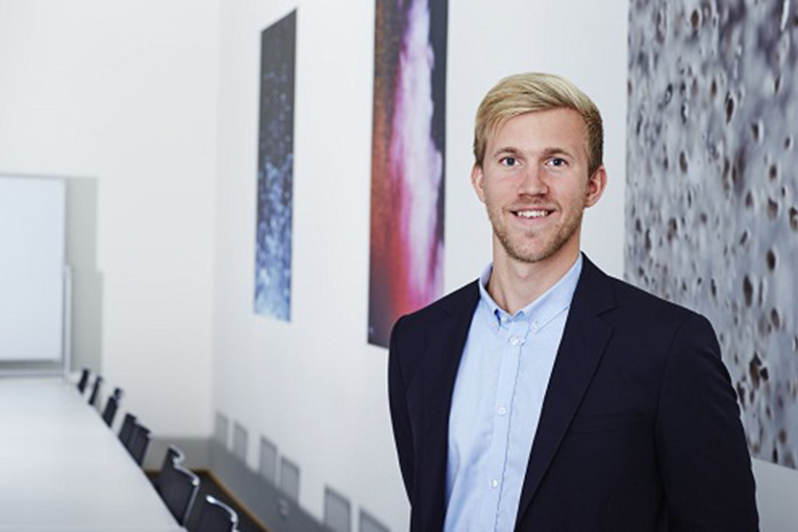
What does your job as an Application Scientist at Chr. Hansen involve?
I am responsible for one of our cheese segments, Cheddar, i.e. for the cultures and enzymes we sell to Cheddar cheese productions around the world. Cheddar production typically takes place in England, Ireland, the United States and Australia and I am primarily in contact with our salespeople, but also our customers, who are the companies producing Cheddar cheese.
If customers are experiencing different kinds of cheese production problems, it is my job to make sure we get to the bottom of it. Typical problems can be that the cheese tastes wrong, or has the wrong texture or the wrong pH. When you supply an important ingredient, which the culture is in a cheese production, it is often blamed if the production does not go to plan and we also provide advice and guidance when it is not related to the culture.
I can imagine that the customers can be quite challenged when they contact you?
Yes, it can often be about an issue that the customer needs to be resolved quickly. Our salespeople are very skilled and can solve a lot of problems themselves, so we usually avoid the very long trips to the US and Australia.
Altogether, I probably have about 30 travel days a year and if a problem is to be solved by our team, it is typically because the customer needs to have some tests done that the company does not have the ability to perform themselves. Then either I would travel to the company or we would have them send samples that we would analyse in the laboratory.
Another type of task is helping the customer optimise the process. For example, at Chr. Hansen we have helped develop a new instrument that we use to measure how the milk goes from liquid to solid form (coagulation) after adding the rennet enzyme to the milk.
I have visited four or five Irish dairies to measure their productions, where the instrument helps us understand why the products are slightly different from time to time, thus helping to make them more uniform.
Cheese producers ultimately want a process that is as streamlined and uniform as possible so that products meet specifications. Otherwise, the cheese may have to be sold cheaper. So it is very much about helping companies optimise the process and make the products better.
You are also the Team Manager for four Cheese-Makers in your pilot plant in your Application and Technology Center – what does that job involve?
Here my role is to plan the work and make sure that my team has what they need in terms of time in the dairy and equipment so we can produce our experimental cheeses. The experiments are an important part of the development of new cultures and enzymes to be tested in, for example, yoghurt and cheese.
At the moment, we are in the process of setting up a new team, which is why I am also involved in the production. One of the best things about the job is helping people develop.
Do you use what you have learned in your education every day?
Yes, I certainly do, but I was surprised at how many other skills come into play when you are in a company. I think that work is 50% academic qualifications from the study programme and 50% personal qualities. For example, it is the personal qualities that come into play when working with people from all sorts of different cultures and when you have to resolve conflicts.
As Team Manager, Mark Knigge is also involved in the production in the pilot dairy at Chr. Hansen
My job is incredibly exciting and challenging on many levels and I quickly realised that for me it is important that the basic elements, like quality, are in place.
Most businesses are commercial, so you have to earn your salary. And as a recent graduate, you can be surprised at how much the commercial takes up in everyday life. In my job, it means that you often find yourself in a dilemma over whether to do something fast relative to doing it well and it is actually something that makes the job exciting, as it requires good communication skills to convince an eager salesperson who has the customer on the other end.
Another thing is that, as a dairy engineer, you have the academic and theoretical approach, but in everyday life there is often something practical that needs to be organised before you can start to talk about the more theoretical.
When I started at Chr. Hansen two years ago, I would, for example, look at the effect of cultures in terms of flavour development and aroma. But before that can happen, I have to make sure that everything works in relation to the way we make cheese. Therefore, there has been another starting point, where we have begun to look at whether we might have to use a purer milk, so we are able to measure the true effect of the culture – and not the effect of the culture along with some microorganisms that were present in the milk from the beginning. Things can therefore take a little longer than you imagine from the beginning.
What do you like most about the job?
The best part is getting to geek out in a little niche – and here I mean geek in the most positive way. By understanding something in detail you are also equipped to improve it.
What drives me every day is that we can do it even better. We can improve something that may seem a trifle, but means quite a lot in the bigger context of an industrial production. So where I am, I think we can go quite far in collaboration with our customers. Many choose us because we have a lot of input into how they can optimise their process even more and turn some buttons, making it all just a little bit sharper.
Mark has since moved on to become manager of the Cheese Lab & Cheese Makers at Chr. Hansen (now Novonesis).
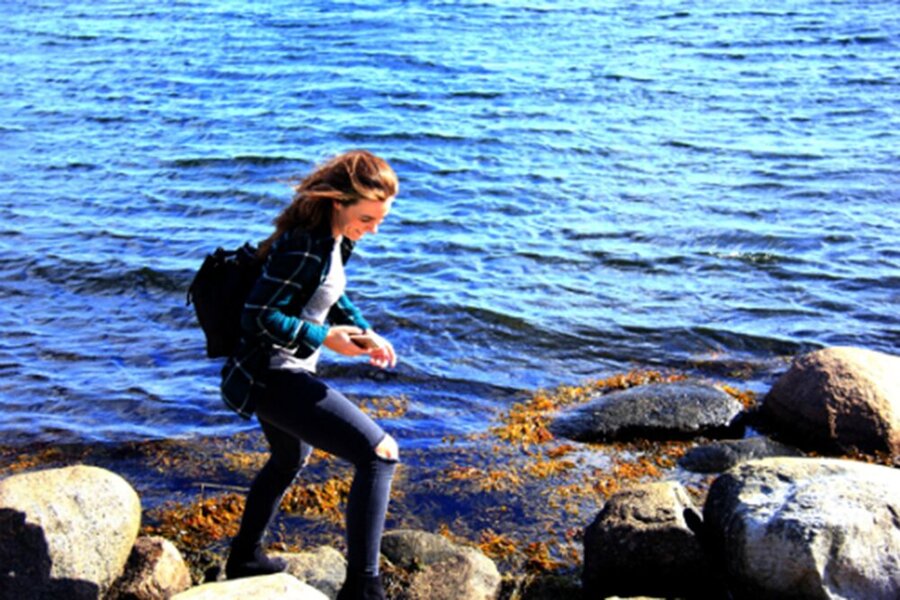
Roisínjane Godkin has come to the Faculty of Science from Dublin Institute of Technology, where she has finished her bachelor in Nutraceuticals, which is a study combining nutrition studies with pharmacy:
“I wanted to experience a new culture and a new city, so I went online and found the Master of Science programme Food Science and Technology at the University of Copenhagen. I really liked the course description and the fact that I could specialise in dairy. Ireland has always been known for its good milk, cheese and grass-fed cows, so I would like to get a good job in Ireland as a specialist in this field one day.
Easy to Get Help From Lecturers and Students
As an international student, I find the lecturers are very helpful. I get a lot of one-on-one time with them and you can have your say. And I often engage in debates with the lecturers and fellow students in an open and comfortable environment.
Also, there is always somebody who can help you with all the practical questions you have when you move to a new place. But of course, it is also important to get out of your comfort zone as an international student and not be afraid to approach people.
Challenges
In the beginning, there can be some challenges though. For example, when I started on the programme I got a course that was taught 100% online. I had never done that before.
There was also a change of exam style: In Ireland I had only had written exams. Here, there are many oral exams where the teachers are so lovely but it is something entirely different. There is also a lot more group work. In Ireland you work alone and it’s a bit more competitive.
Close Contact With Industry, Excursions and Access to a Diary Pilot Plant
The course with the dairy specialization is very unique. You get the option of doing a paid internship and there is a dairy pilot plant on campus. Here students get a chance to use the equipment and have practical exercises on a weekly basis.
And the courses are really good, the lectures keep it relevant by bringing in the newest research, explaining to you why you are learning what you are learning and how you can use it in the real world.
As a student, you also have close contact with the industry. Industry professionals are brought in as guest lectures, there are many networking-events where you can meet potential future employers and there are spot-events for students where you get help to find different job options in your field, make a good resume and so on.
We also go on a lot of excursions to different production sites and see the supply chain from first hand. You get familiar with the whole chain: from the cow being milked to the actual production.
Job Opportunities
I want to join a graduate programme if possible. There are some options out there. It will give me work experience in all aspects of the field so I will get to see what my strongest points are. I am particularly interested in the production side of things and manufacturing of dairy products, so I hope to work my way to consulting to the food industry.
Roisínjane Godkin is currently working as a Business Manager at Arla Foods in the UK.
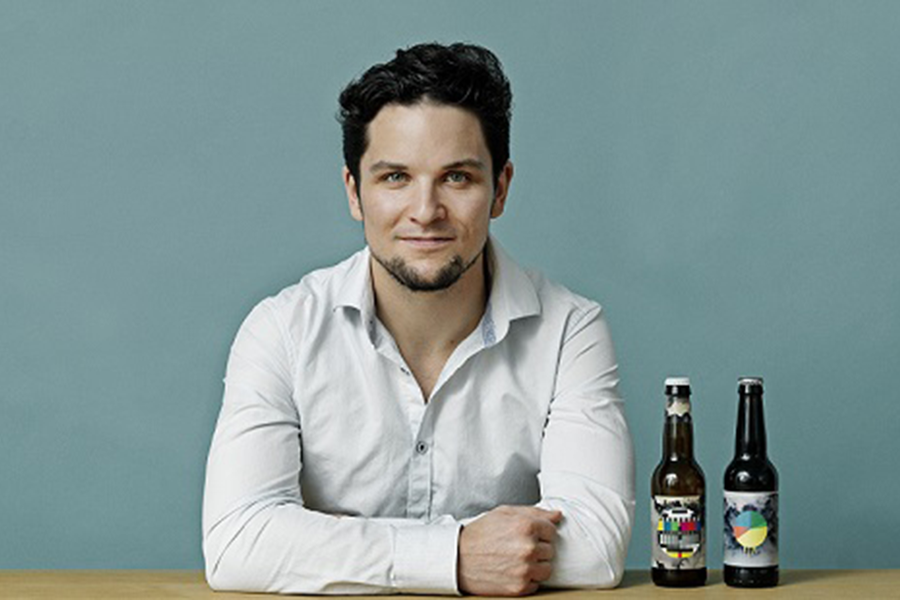
Why did you choose to do a BSc in Food Science at the University of Copenhagen?
Because I find the chemistry of food fascinating! Why are some foods red, and others viscous, while some food items separate when boiled? I’ve always been interested in what makes food food. In year 9 I did work experience at the Department of Food Science at the University of Copenhagen, where I did some experiments involving putting boiled ham in a UV light cupboard.
The great thing was that I was in a laboratory – but it was not about chemicals, it was about seeing what was in the food.
What makes food chemistry so interesting?
In my master’s thesis I wrote about the aromas found in hops, and how they can be affected by microorganisms etc. One amazing fact is that you cannot define the taste of a beer based on a particular aroma, but that 400 different aromas in a highly complex interplay with your nose and brain combine to produce the taste. A beer might taste like straw and grain with a scent of lemon and grapefruit.
It’s incredibly beautiful that it can take me hours to try to quantify some of the aromas, but it only takes my nose and brain a split second to get an impression of what it tastes like, and whether I like it or not. So it’s the complexity of something as simple as food and beverages that makes it fascinating for me.
How did your interest in beer arise?
After completing lower secondary school, I started at Det Frie Gymnasium, a private upper secondary school based on very democratic principles, and where students have a lot of influence. The students proposed that the school should invest DKK 8,000 in a home beer brewing system. Many of the teachers supported the idea because the system could be used when teaching a number of subjects: mathematics, physics, social science, chemistry and biology. There was a great deal of interest in it, and the system was purchased.
So while others played music, brewing beer became our hobby. This wasn’t something I thought about much when I applied to do Food Science. It was only in my second year of the programme that I started to think that perhaps we could turn beer brewing into more than a hobby.
How did you become a master brewer?
It was pure luck. I was doing an internship as a food engineer at Scottish brewery BrewDog, when I heard that a master brewer programme was likely in the pipeline. I grabbed the phone and got hold of the right people, so that my internship could count towards the new master brewer programme. I had to write a different kind of report in addition to the report I had to write to become a general food engineer. So I’m both a food engineer and a master brewer.
What do you think is special about the Food Science and Technology programme?
It’s an extremely broad programme. In my job today, I can talk to brewery suppliers and discuss the design of pumps, boilers, steam generators and power relays. I also understand the entire microbiology of beer, and know why beer begins to taste like cardboard if there is a fault in production.
I’m not as specialised as the chemical engineer, the microbiologist or the sales manager, but I have a broad understanding of topics like production, process, taste – and even economics, as I did a lot of economics as part of the master brewer programme.
How do you use your studies in your work each day?
I’m always looking for new ingredients for our beer – such as fruits or herbs. If I want to use cloudberries, I have to work out how they are best expressed in a beer. Whether they should be fermented, matured, boiled or extracted in alcohol. There is a whole microbiological cosmos of yeast strains and bacteria cultures, all of which can add a beautiful touch in a beer, if you just know how to bring out exactly the taste you want. The theories have to be tested in practice, and I draw on my knowledge from the programme every single day.
I do VAT accounts and tax, and host beer tastings and seminars, but I also get the opportunity to use my training a lot of the time. Last year we launched 40-50 new beers, and we also have an idea about making bottled cocktails and soft drinks. Making recipes is also still my hobby. When I eat dinner or drink a glass of wine, I automatically think about how it tastes, and which grape the wine was made from and which yeast strain has been used etc.
I’m always keen to do something new. ‘To Øl’ is an experimental brewery where we do a lot of innovation. We need to always be on our toes, and we make regular trips abroad to see what’s happening in the beer industry in other countries.
Would you be able to use your degree elsewhere in the food industry?
My expertise is in liquids, and in our new business, Tapperiet Brus, I will draw on my knowledge to make soft drinks and bottled cocktails. This is a new field for me, but fun to jump into. The soft drinks have to be organic and unpasteurised to get the pure taste.
So I feel I have all the challenges I could want. But maybe one day I’ll start making whisky. I like to dream about that. Buy a property in the country and make whisky to be stored in oak barrels for decades!
Since this interview, Tobias has founded EtOH Spirits, which produces whisky with a maturation time of only 7-14 days, in part through the use of heat and ultrasound.
Contact student guidance
Contact SCIENCE Student Service
Do you have questions about the programme structure, study or career opportunities, admission requirements or application procedure, please feel free to contact SCIENCE Student Services.
Contact SCIENCE Student ServicesLocation
- Faculty of Science, Frederiksberg Campus, Thorvaldsensvej 40, DK-1871 Frederiksberg.
